Laws in Dubai that Tourists Might Not be (but must be) Aware of

The world is witnessing Dubai’s rapid growth and it is turning into one of the most sought- after destinations for tourists around the world. Even though this is the case, many travelers, especially from the Western countries, think twice before planning a vacation in Dubai as it is portrayed to be extremely conservative. But, if you can keep just a few points in mind regarding the laws in Dubai, this place can offer you the most unforgettable vacation of your life time.
Respect the culture of the place you are visiting
Something every traveler visiting another country should keep in mind is that you are there to experience their culture and not to give them a cultural shock. When most countries might be lenient on tourist laws, Dubai is definitely not one of them. As an Islamic country, Dubai has laws that are thoroughly intertwined with religion and that is why it becomes extremely important to be sensitive about the rules they have in place.
Laws around Alcohol
Consuming alcohol is not illegal in Dubai, if you know the answers to where and when. The legal age for alcohol consumption is above 21. If you are a tourist, you can drink from licensed venues like restaurants, bars, clubs etc. Buying alcohol in Dubai requires a liquor license, so if you are tourist, you wouldn’t be able to buy alcohol from general stores and supermarkets. Consuming alcohol in public is a strict no and you may be fined or even jailed if it comes to the notice of authorities.
Dubai is a country that values life. Thus, there is a zero tolerance policy for drinking and driving. Even with the smallest amount of alcohol in your system you would have to pay hefty fines.
Regarding drugs
Can you get away with drugs in Dubai? The answer is a very plain straight NO. Consuming drugs or carrying them, even if you are travelling from one country to another and transiting through Dubai airport, can bring you 4 year jail time and deportation. Buying or selling narcotics would buy you life time imprisonment. So, before you travel to Dubai, make sure that you check the UAE embassy website for details as even some medicines, accepted in other countries, that have psychotropic substances are also illegal in Dubai.
If you have prescribed medicines, such as painkillers or anti depressants, you need to carry a prescription and doctor’s note containing specific information regarding your condition, dosage, period of travel, duration of consumption etc. To have a relaxed journey, it would be much better to consult your UAE embassy or lawyers in Dubai and get prior permission from the authorities to carry your prescribed medicines.
How to dress in Dubai?
Dubai has strict dress code that needs to be followed in public places like shopping malls, parks and restaurants. Clothes that are too revealing would get you reported and cause you trouble. It is advised to wear clothes that cover your arms and legs. Swim wears are allowed in beach, water parks and swimming pools, but not anywhere outside these areas.
Dancing your heart out in Dubai
You can dance when you are in your own private space or at licensed clubs and events. Dancing in public places would cause trouble as it is considered to be inappropriate.
Mind your language when you are in Dubai
Using cuss-words and swearing in Dubai will not be taken lightly if reported. It is a serious offense which can cause imprisonment and deportation.
Unmarried couples
A sexual relationship outside marriage is illegal in Dubai, so is cohabiting. However, most hotels in Dubai, especially the luxury hotels, don’t enforce “only married couple” rule. But it would be safe to refer to your partner as your husband/wife to avoid unpleasant situations.
Gay and lesbian travelers should be extremely careful as homosexuality is considered to be a criminal offense and display of public affection would get you deported. Public display of affection is generally not tolerated according to the laws in Dubai, even for married couple. Kissing and hugging in public are considered to be indecent behavior.
The holy month
During the holy month of Ramadan, everyone who is a follower of the Islamic religion would fast from dawn to sundown. Eating and drinking in public places during this time is an offense. Partying or playing loud music during the period of fast is also not allowed. Anyway, some hotels and shopping malls would have screened spaces where non-Muslims can eat.
As far as you can follow these rules, you can have an amazing time in Dubai, memorable for all the right reasons. Make sure that you read more to stay updated with the laws of your period of travel and don’t hesitate to get help from the embassy when you need any clarification.
Why Your Business Needs a Legal Advisor

Running a business has its fair share of difficulties and at times, a run in with the law is imminent. Having legal aid that those times are critical to a company’s success. However, when you look at the successful businesses, we will understand they don’t wait till they get indicted to hire a lawyer.
Interestingly, these companies rarely go to court because every business step that they take will be reviewed by legal experts to make sure that they don’t infringe the lines of the law. We have explained the need of legal advisor in detail in the following parts.
Who said that you can only hire legal advisors only after your business has met with a lawsuit? Ensure that your business is making the right steps from the start by having an expert on your side from the beginning.
The best thing about having legal advisors in your business setup process is that they will help you get the most advantages from the government since you are starting out. These early incentives can get you a lot of advantages, in terms of both monetary and social support.
A legal advisor can help you in every facet of your business, and this also includes the hiring process. Did you know that there are legal rights for job candidates that must be fulfilled? For example, any discrimination or unnecessary leeway for specific candidates can get you in trouble with the law.
With legal advisors, you can mitigate the risks by either having them conduct the hiring process or have them on supervision. Even a seemingly harmless process like hiring can turn out to harm you if you are not careful. Hence, I more reason to choose a legal advisor.
Business owner rarely has the time to study whole sections of the law that pertain to their niche. So it’s easy to make mistakes along that way. By having expert lawyers on guard, you can make informed business decisions that are in line with the laws of the area that you operate.
Without such assistance, we see businesses make the wrong moves legally, not deliberately, but they do not have any guidance on the legal side of things.
Making legally sound business decisions also makes your business a name that people can trust.
Contracts and other legally binding documents become an everyday ordeal when your business starts to grow. But did you know that these contracts may hide very important matters that pertain to your business?
Sometimes you might be signing into deals that would later come back to harm you. Hence care must be given so that these contracts are properly reviewed before moving then forward. Again, your area of expertise may not be the law and you must accept that you are not the best person for the job.
Having a team of expert lawyers on board is a whole different scenario, they will go through the material with a fined toothed comb, revealing each and every aspect of the contract and how it affects your company.
Even though how careful you are, you cannot rule out the possibility of receiving a lawsuit one day. And if the allegations are of serious nature, then it can stress you out very bad. The end result will be you scrambling to make sense of everything, and this includes finding a lawyer you can trust and laying out the framework for the case. However, this increases the risk of losing the case by a large margin.
However, when you have the assistance of a legal advisory team or a professional legal advisor, you are always prepared for lawsuits. The team of expert lawyers will start working right away to create a counter plan, helping you to resolve the matter to your advantage.,
We have discussed how the business people find it hard to wrap their heads around the different laws and move their business forward at the same time.
By corresponding with a legal team, you are also expanding your knowledge in law that pertain to your business. In time, you will also have basic knowledge of the business law of your country.
This is greatly helpful in not just making business decisions but also as a magnet for attacking powerful people. When you are looking for future prospects, in order for them to do business with you, they must feel secure around you. they must have the confidence that you are the person they can depend on, and knowing the ropes of law certainly makes you seem like a person they depend on.
The lifeblood of the business world is transactions. They happen all day every day, keeping the whole structure afloat. However, the inflow and outflow of money should be carefully measured so that the business has a record of everything.
However, there are also scenarios where some of your clients may refuse to pay you. In such cases, you don’t have to involve directly, as you can have your lawyers take care of it. If the client doesn’t want to pay, the lawyers will inform them of further implications.
The mark of a good business is that it also thinks ahead and make plans for the future while serving their clients in the present. When you have business expansion in mind, either domestically or internationally, certain variables come into play like the tax, foreign rules (if applicable), finance, acquisition etc.
And making the wrong move here means that you can face serious consequences in expansion, which can really hurt your business as well as your bank account.
But when you have people who know the law on your side, expansion is a breeze!
When you are running a business, there are certain facets of it that can really get you in a lot to f trouble with the law. Having the aid of a law firm makes conducting business a whole lot easier and safer. If you are looking for the best legal consultants in Dubai to partner with, then Al Khalifa Advocates is the way to go!
Money Laundering: Learn The UAE Laws Regarding Money Laundering Crimes
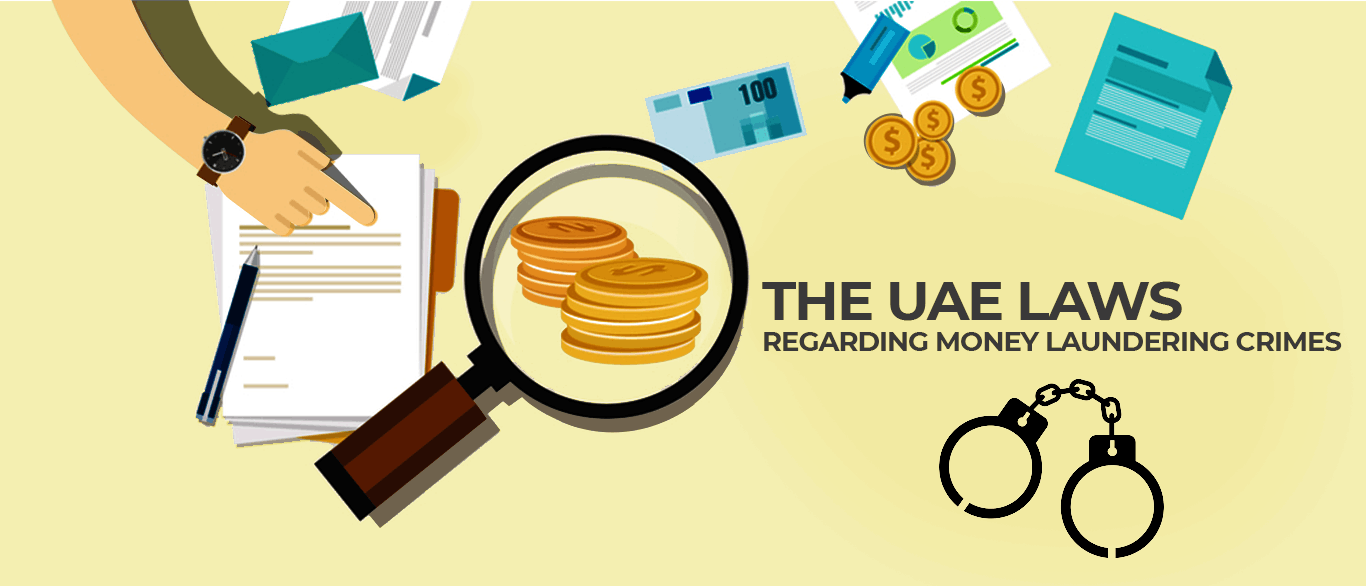
The UAE has made a series of changes in the way it handles money laundering. The government has gone the additional mile in clubbing the Anti-money laundering laws with terrorism financing so that the law Federal Decree No. 20 of 2018 applies to several verticals of illegal monetary transactions. The new laws are in accordance with the guidelines set by the Financial Action Task Force, which pertain to terrorism financing and anti-money laundering regulations.
His Highness Sheikh Khalifa bin Zayed Al Nahyan himself issued the creation of a unit that solely handles money laundering, terrorism financing, and other illegal transactions. The new law implements a methodology where the institutions having an income, either through business or other professions must be completely accountable for their finances. They must not open accounts anonymously or under any pseudonyms.
The institutions must also identify, evaluate and update on crime risks that are involved in their area of business. there should also be internal policies that must be in place so that the company can review the risks better and intercept them before it escalates.
As per the new reforms, if any person or institution is caught performing the following procedures with the knowledge that the funds were generated as a result of a crime, then action will be taken against them.
One must note that these actions we have specified will only count as a crime if the person handling the money is aware that it is from illicit sources, otherwise, the crime is considered to be committed out of negligence. Since money laundering is not considered to be a predicate crime, a person charged for predicate crime can be charged money laundering penalties if they are found guilty with money laundering.
The financial information is set in place to regulate financial institutions by reviewing their report and other financial activities. If any discrepancies are found out in the operation of a financial institution, the report will be handed over to the concerned law enforcement teams.
The financial information unit can also have the authority to transfer the reports on illicit conduct to other countries who may help the UAE departments in the process.
There are other government bodies that regulate monetary proceeding in UAE and often, for cases that span across multiple jurisdictions, they collaborate with each other. The following government bodies are active in UAE’s Anti-Money Laundering initiative:
The penalties that come in effect when charged with Money Laundering begins with a fine that ranges from DH 10,000 to DH 1 million. There is also a chance of imprisonment that can last up to 10 years.
Are you facing legal complications that pertain to Money Laundering? Put yourself and your business in the safe by hiring expert lawyers to present yourself in court. With Al Khalifa Advocates in Dubai, you will always have the legal upper hand! Contact us today to know more!
How Does DIFC Help You With Will Succession If You Are a Non-Muslim

When it comes to real estate in Dubai, there were all these confusions or uncertainties regarding how the will come into the equation when non-Muslims or expats are involved. That has all changed with a series of rules that were laid out by the Dubai International Financial Center or DIFC.
The reason why many hold skepticism in the Dubai real estate law is that it did not allow the Right of Survivorship concept. This means that after the death of a person, his or her land fall under the ruling of Sharia law. We will explain more about in the following sections.
Since Dubai did not support Right of Survivorship, this alone made non-Muslims and expats uncomfortable in owning assets in Dubai. There is no guarantee that their offspring would get the assets. So naturally, they tried to take their assets and move them offshore.
However, this does not contribute to Dubai’s economy as it takes money away from it. Concerns were also raised about guardianship of children after the demise of their parents. To make matters even worse, upon death all bank accounts of the deceased will be frozen. Then a liability check will be done in order to see if the person had any debts attached to their name.
After the liabilities have been paid off, the assets will fall under Sharia law. In sharia law, the assets will be will be carefully examined by a ruling body and it will be divided and distributed to the land owner’s family. However, the case will be different if the deceased had a will in place that carefully stated out where their money should go.
On November 16th, 2014, the Dubai International Financial center made a huge announcement that brought back the interest of Non-Muslims and expats back to Dubai. They introduced DIFC and Wills Probate Registry that helped non-Muslims and expats to register a will under it. So now the concerns over the assets not being transferred to the offspring were eliminated.
In essence, with the formation of DIFC, non-Muslims, expats, or residents in Dubai who own assets can decide how these assets would be distributed after their death.
The Dubai government has even gone the extra mile and have partnered the DIFC WPR with the Dubai Land Department and the DIFC Dispute Resolution Authority. This decision paves the way for faster asset transfer without causing any holdups.
Before we go any further, you must know that there are different types of wills valid in the UAE. Expats and non-Muslims living in the Dubai should factor in their characteristics while choosing one. The following brief explanations will help you have a rough idea on the same.
Guardianship Will: The Guardianship Will pertain to appointing a guardian of your choice for the welfare of your children. The will provides the parents to appoint interim or permanent guardians who may belong to their family or are close friends.
Full Will: As the name suggests, a Full Will covers all grounds such as assets, ownership, and guardianship. The person can choose how their assets should be distributed after their time, and they can include their entire assets in the will without any limitations.
Property Will: The Property Will allows the person to prepare a will for five specific real estate properties that they own. A pre-registration check can be done via appointment at the Wills Service
Business Owners Will: It helps the testator to create a will that encompasses 5 separate shareholdings in any free zone or UAE onshore company situated in the Emirate of Dubai or the Emirate of Ras Al Khaimah. The person must be aware of the fact that the will is only valid if the company in which the shares are held is incorporated into the Emirate of Dubai or the Emirate of Ras Al Khaimah under the accordance of UAE Federal Law.
Financial Assets Will: Provides support for brokerage and bank accounts. Ten separate shares or bank accounts registered in the person’s name or jointly owned can be registered in the will. The bank accounts or brokerage shares must be in the Emirate of Dubai or the Emirate of Ras Al Khaimah and should have approval from a financial institution regulated as a bank by the Central Bank of the United Arab Emirates or a brokerage firm by the Emirates Securities and Commodities Authority respectively.
The result of this move by the Dubai government is certainly in the positive as more and more people are now confident in owning property and other assets in Dubai. In the first half of the year 2018 alone, Dubai amassed more than $4.84 billion in foreign investment.
This year, 2019, the trend is only going to continue as investors flock towards Dubai for investments. Therefore, it’s safe to say that the changes made by the government have indeed been well received.
If you are a non-Muslim or expat having trouble figuring out how to register your will with the DIFC or need help in general about the system, then you can always find a helping hand with Al-Nassar Advocates. Our expert lawyers in Dubai will explain everything you want to know about the system and can represent you in court if you need to raise your complaint against a discrepancy. Call us at +97142555110 or send an email to info@consultalkhaliflegal.com to know more!
New FDI Ruling in UAE Encourages New Industry & Foreign Investment
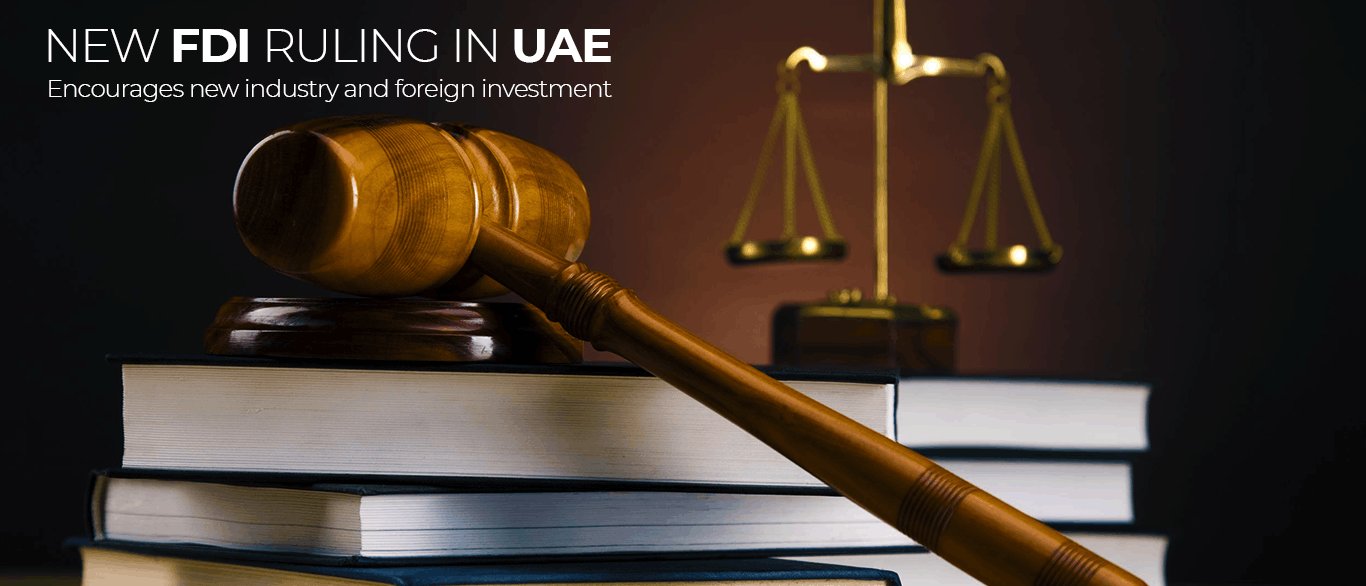
The recently introduced Foreign Direct Investment Law (Federal Law 19 of 2018) is an epoch making event in UAE’s economic history. As per the new law, foreign shareholders can now have upto 100% ownership of companies in specified sectors. The FDI law provides for a positive list and a negative list which is nothing but the sectors in which 100% FDI is allowed and sectors in which they are not. As per the law, the UAE cabinet is to form a FDI committee which will suggest the sectors to be included in the ‘positive list’. The final decision on the sectors in the ‘positive list’ will be left to the UAE cabinet. A broad outline or principles has been given for the Foreign Direct Investment committee to determine the sectors under positive list.
(i) To be in alignment with the overall plans of UAE;
(ii) Value addition to UAE economy;
(iii) Technology innovation and job opportunities and training for UAE Nationals;
(iv)The overall expertise, repute and competency of the FDI firm;
(v) Modern technology implementation and
(vi)Any other requirement and conditions as may be imposed by the UAE cabinet from time to time
The level of such ownership can be fixed at any level, either 100 percent or any lesser percentage. Conditions may also be imposed on the minimum capital requirement, the form of entity and Emirati (employment on board) requirement etc.
Not-permitted sectors (The negative list)
Article 7 of the FDI law specifies the negative list in which higher levels of FDI is not permitted. These are:
(i) Petroleum products exploration and production;
(ii) Fishing;
(iii) Security, Military, Arms and Weapons and uniformed services and equipments etc;
(iv) Post & Telecom;
(v) Banking and Financial services;
(vi) Transportation (Land & Air);
(vii) Insurance;
(vii) Hajj & Umrah services and services such as publishing, labour, recruitment, pharmaceutical, blood banks, quarantines, electricity and water supply etc.
The cabinet has the right to add or remove any sector from the above list.
Article 10 lists the procedure to apply for increased FDI ownership. The application should be processed within 5 working days by the competent authority. License shall be issued by the Economic Department of the Emirate concerned, while rejected applications have an appeal process defined. Detailed procedures for registration, renewals etc. are being issued separately.
For sectors that are neither on the positive list nor on the negative list, applications can still be submitted for higher FDI. A new FDI Unit will be created under the Ministry of Economy. The FDI unit shall recommend the FDI policies to the Government and establish a comprehensive database of FDI projects in UAE and monitor their performance too.
The new FDI law is a path breaking event in the annals of UAE’s economy. Though at present there is no clarity on the exact sectors under ‘positive list’, the UAE cabinet has been given the powers to issue directions on this. The cabinet may accordingly permit a ownership of less than 100%, place restrictions on the type of entity, specify minimum capital investment, allow greater FDI ownership in specific Emirates and so on. We, at Al Khalifa, advocates in Dubai are constantly monitoring each and every development in the sector and undertake a careful review of every Act, Article and law made in this regard. Whether you are a MNC looking to improve your UAE presence, or a local business wanting to know how the new law will affect the future of UAE’s economy, you can contact Al Khalifa Advocates for more clarity and information on the issue.
The New Mortgage law in Dubai: What you need to know!

If you were to carefully review the new mortgage law in Dubai, one thing becomes crystal clear; it is aimed at strengthening the real estate field in UAE. The new law paves the way for more foreign investment in the city. The reforms don’t just end there as the new law supports “alternate funding methods.”
“By developing Dubai’s Mortgage Law, we will help real estate organizations to operate in perfect harmony and enhance their smart resources to provide the best possible services to the customers and create strong new investment tributaries.” Said Sultan Butti Bin Mejren, Director-General of Land Department
Hence, we can derive three major motives that Dubai is trying to achieve
With that said, the laws also serve the purpose of bringing more structure to Dubai’s Mortgage system. The key takeaways are:
Dubai has a curious case with its mortgage proceedings as the country faced an increased demand for land in recent years is what the professional real estate lawyers says. The real estate prices saw great gains, as much as 79% from 2007. Even though the high prices will bring in more overseas capital, the Dubai government realized the need for a most structured set of rules and regulations to maintain order and smooth progression of the economy. Therefore, without waiting for things to worsen, the Dubai government has made the necessary changes to keep the system running at full steam.
The new Mortgage laws will enable the flow of REITs (Real estate investment trusts) and alternate finances, which will greatly help the developers to build property without struggling to find capital. Since Dubai now stands as a prime location for investment opportunity to foreigners, the new laws certainly give them better visibility when it comes to investing in Dubai. These new reforms fall under the vision “Dubai plan 2021”.
The new set of laws is also aimed at helping the middle-class residents to buy their own property, freeing them from rentals. With the current real estate scenario, a user will have to pay at least 32% of the total value of the property upfront. With the new laws, this value is expected to decline, helping the mid-tier section to own property in Dubai.
The new Mortgage laws are indeed a welcome change in Dubai, and it will help many to realize their dream of owning property in Dubai.
Benefits You Can Get From the UAE’s New Federal Arbitration Law?
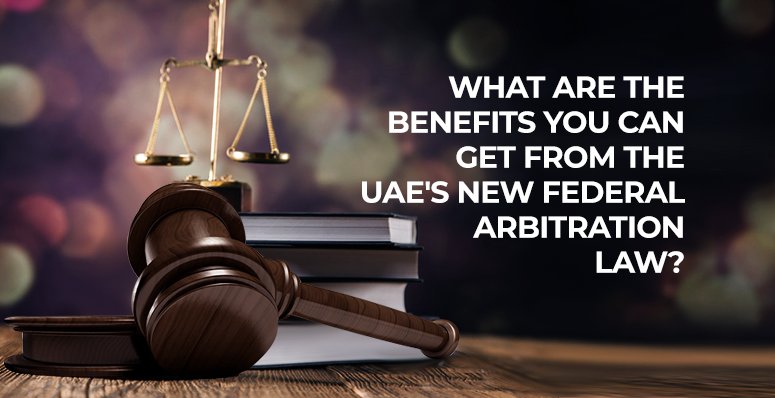
Before jumping into the new Arbitration law put forward in UAE, let’s have a look at what arbitration laws actually stands for;
Arbitration is the process by which two parties in dispute resolve the issues with the help of a third party like an individual or a group, without taking matters to court. The third party who provides the verdict are called arbitrators. Laws on arbitration governs the parameters in which arbitration takes place.
UAE issued a new law concerning arbitration which is known as Federal Arbitration Law of UAE. This Law was implemented on May 3, 2018. This new law, containing 61 articles, was issued as a replacement for the previous arbitration law of UAE, ergo; the new laws will replace the Articles 203 to 218 of the UAE Civil Procedure Code (CPC). The new law addresses the shortcomings of the previous rules, that led to many suspecting the efficacy of the previous law. It took the effect of one month after it was issued in May.
The Federal arbitration laws aims to develop the UAE as a towering presence in matters of international arbitration. For achieving this feat, the new arbitration laws in UAE is based on the UNCITRAL model law on Internal Commercial Arbitration. The new set of laws is a great way for UAE to be one of the countries who participate in resolving international matters.
Furthermore, if UAE gets its seat among the list of international arbitrators or the International Chamber of Commerce (ICC), it will provide the following benefits to UAE;
With the new law in place, UAE has made a giant leap towards unifying its arbitrary laws with international standards. Some of the welcome changes are;
The new arbitration law in UAE draws a clear distinction between arbitration conducted internationally and domestically. Therefore, the new laws are applicable to both international and domestic arbitrations.
In essence, the new arbitration law is a welcoming change and most definitely a milestone for the UAE. With this new change, UAE will be able to position itself among the to-go places for international arbitration. It will also bring more structure to the domestic arbitration laws. One of the best reformations is the decreased downtime in getting things done. This new change will positively show UAE as an investor-friendly country and bring in more foreign business. You can also consult with legal advocates in Dubai, UAE to have a clear idea about the benefits of UAE’s new Federal Arbitration Law.
How to Find the Best Real Estate Lawyer in Dubai, UAE?

Before venturing out to find the best real estate lawyer in Dubai, you must ask yourself if you know the qualities to look for in a real estate lawyer that puts them a cut over the rest. Since they handle very delicate matters that are usually of large financial significance, you need to carefully review their skills and reputation before going through with the appointment.
If you do want to find the best real estate lawyers in Dubai, select a lawyer who possesses the following set of skills:
Lawyers need to have the license of the respected jurisdiction license if they want to deal in a certain state. Lawyers often reject clients from states that they do not operate in. But if the details were to go unnoticed, you might be hiring a lawyer who is not authorized to practice in that specific area. This can lead to further legal complications. The remedy is pretty simple as you can ask for their license before hiring them and ask them about their jurisdiction rights.
When you are hiring a real estate lawyer, you have to be sure that he/she is giving you all the right info without any blinds on. When something goes wrong or if your business strategy needs immediate change, you must have to hear it no matter how negative it is. Leading the client on without giving out proper info will cause a breakdown if something bad were to happen.
When you are in the process of buying or selling real estate, you must inquire about the area where you are trading. There might be some complication tied to a piece of land that might hinder its value over time and knowing everything about it from the get-go will be a major help. A real estate lawyer with appreciable local knowledge will have all the key skills to facilitate a smooth trade.
If you are looking for a real estate lawyer for a specific purpose, make sure that the lawyer has enough grasp of the matter. This can be easily evaluated if you review their past cases. If they do not have enough expertise in the field that you need help in, choose another real estate lawyer who does have experience in that specific field.
You can spot the best real estate lawyers in Dubai by how much value they give to their client’s time. Like the saying that goes “Time is money,” every second matters when it comes to business. You will know that your real estate lawyer is serious about your matter when he/she shows up for meetings and other legalities punctually.
The real estate lawyer that you select must be skillful enough to get you the best deal always. They must be able to convey the ideas better and have the proficiency to conduct deals that make the client happy. Negotiations are a critical part of real estate trade because the deal must be in such a way that both parties can leave happy. You need a skillful lawyer to find that sweet spot.
There is no real benefit in having a real estate lawyer who has all the above qualities but does not respond in time to your queries. Promptness or availability are two different attributes that achieve the same end result – better client satisfaction. Just think of a scenario where you need immediate legal assistance, but your real estate lawyer in Dubai is nowhere to be contacted! So be sure that the people you hire are available to you.
We know how hard it can be to get a real estate lawyer in Dubai who can check all the right boxes at all times. We, Al Khalifa Advocates & Legal Consultant, found a solution to this by giving you access to a group of lawyers who have proven their mettle in their respective fields. This way, you will always have the best possible help by your side 24/7. Why wait, contact us now!
Will and Succession Planning: What You Need To Know!

While we talk about the different verticals of law, one of the major, yet overlooked part of it is Will and Succession Planning.
To get you up to speed, a Will can be defined as a document carries the name of the person who is going to inherit your assets. The Will can also specify other things like a wish or a task that the guardian wants the inheritor to carry out.
It is later executed using probate, and this ensures the authenticity of the will as well as ensure that the right person gets the right proportion of inheritance. The probate is processed through the court, and upon successful validation, the inheritance is distributed as per the requirements stated in the will.
It is a matter of great concern when a large portion of UAE citizens are unaware of the UAE inheritance system, especially expatriates. In UAE, Inheritance is guided by Sharia Laws, and they apply to every Muslim national.
When the time comes, the Will is The probate is also offered the verdict of guardianship if there are minor children involved.
The nationals of the UAE can get their inheritance based on the rulings of the Sharia law, but many expatriates do not know how the system works with them in the equation. This is also one of the major reasons why expatriates shy away from buying land or other investments in UAE. It is best to meet with legal consultants in Dubai before you give up on it completely.
However, these concerns are there because they do not know how the rules in UAE are structured. Article 1(2) of Federal Law No. 28 of 2005 allows the expatriates, even non-Muslim personal, the freedom to make a will that is based on their home country’s personal law. However, care must be taken to ensure that the will is translated into Arabic and then duly notarized with the Notary public in UAE.
If an expatriate dies without a will in place, then the UAE government will process the inheritance based on the Sharia law. The task of processing your inheritance will be dealt with by the local courts. The processing takes places with the following procedure in place;
Since such complexities are involved, we can’t stress enough on the matter of making a will for your assets. Having a will set in place will help the inheritors from a great deal of malevolence, not to mention that the legal proceedings will cause the bank accounts to freeze and pauses any ongoing or upcoming investments till it’s over.
Real estate division is another matter of complexity, and its best get professional help from real estate lawyers in Dubai when it comes to sorting out the inheritance system applied on real estate. We are a team of professionals, comprising of the best advocates in Dubai, who have helped numerous clients with their wills and inheritance models. Get in touch with us, and we will help you sort things out the way you want it.
IP Protection Law in UAE: An Overview
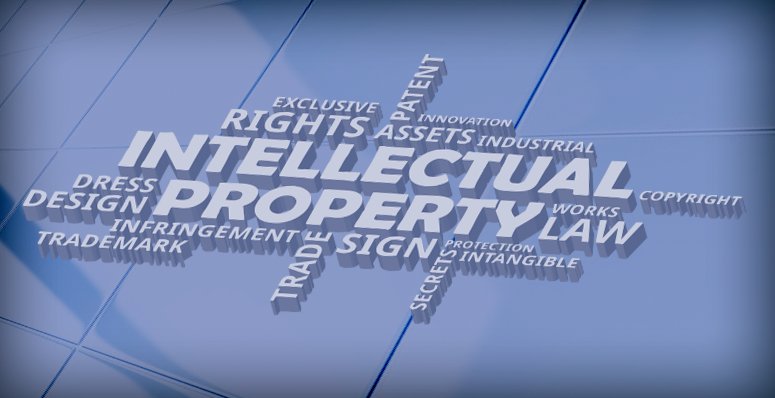
Intellectual property can be summed up as the property that is created with the human mind. Every invention, piece of literary or artistic work, brand names and even symbols can be called as intellectual property. Since it is a product of sheer imagination and commitment, it should be regarded as every other asset that needs protection. This is where intellectual property laws come in. They protect intellectual property from theft and corruption using trademarks, patents, copyrights, and trade secrets.
The IP Protection laws varies from place to place. Intellectual property protection or IP protection in UAE is governed by the Federal laws of UAE. In essence, they all serve the same purpose – to protect the intellectual properties of their inventors.
A brand speaks about a unique entity. Similarly, every single invention ever made is a mark in the world made by its inventor. So when others make a blatant copy of an invention, the investment of the maker goes to waste. Think about a scenario where anybody could start a business with the name of any A-list brands. This spells disaster as it completely destroys uniqueness and makes people lose trust in brands. Alternatively, imagine where a painting or an image that you have created being copied and circulated without your permission. This is the importance of getting intellectual property protection.
If you have unique ideas that you need to be protected from prying eyes, you should make yourself acquainted with the following terms.
Since intellectual properties are very valuable and can even help in the progress of the whole country, UAE has passed several rules on the same. The following are the major IP protection Laws that are laid down by the UAE legislature.
These are only the list of main laws that deal with IP protection in UAE; there are also several other complimentary laws that come as the subgroups of the main laws.
Therefore, UAE has a very robust system for protecting IP properties. If you or your entity needs IP protection, a good Law Firm specialised in the practise of Intellectual Property Laws in UAE, could help you with necessary registration and legal actions in the event of infringement or apprehended infringement.
A Guide to Securing and Recovery of Debt
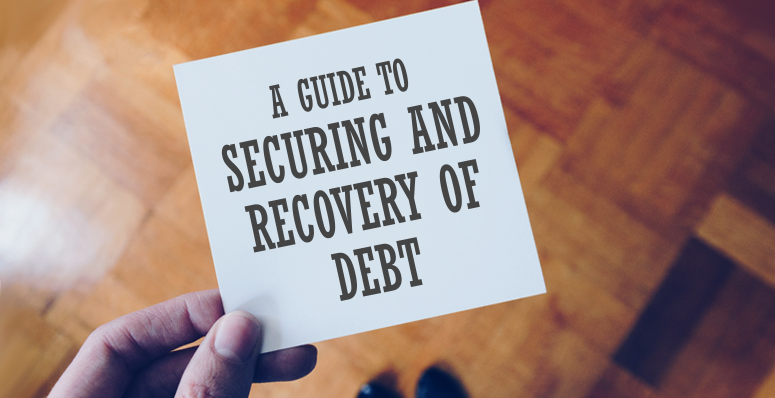
Lending money is crucial in modern business setups. Big business projects or personal projects are backed by huge debts with a promise of complete repayment. Financial setups throughout the world have a working model for the solicitation, disbursement and the recovery of debt. Debt is available in several forms and the most common form is that of the secured debt. The financial institutions provide a certain amount that is backed by some collateral that can help the recovery of the amount in case the debt is not settled in time.
A debt is secured when backed by any asset equal or greater than the amount given. In case of secured debt, a credit check is carried on just to confirm whether the loanee can be considered capable to handle the debt and repay it, whenever required. The collateral offered to secure a debt depends upon the type of the loan. Financial institutions usually work with properties including house, vehicles, certificate of deposit, savings or jewellery. Collaterals vary in case of commercial loans. Commercial loans offer natural reserves, securities, assets or real estate to the financial institution for securing the debt.
These secured debts are usually available at fewer interest rates. Since the loan is secured with a backup collateral, institutions consider minimal risk and provide loans at low rates. This security also makes large loan amounts a possibility. The repayment of such debts come with a much longer period, in most cases for a period of years, because the value of collateral matures over time as well. Credit unions, banks, lenders, act as sources for this kind of debt. The terms of each source might be different but the vetting period usually depends upon how big the debt is. The analysis for debt securing is thorough. The financial institutions make sure whether the transaction is worth it in the first place.
In modern scenario, the most crucial problem of businesses is the outstanding debt. Amount tends to get stuck, in case the loanee acts irresponsibly or fails to pay back at the time. The recovery process becomes difficult and gobbles a lot of energy, resources and time. An escalation process is initiated in order to clear the outstanding payment.
On-time recovery of debts adds to the fiscal health of a company. Delinquent debtors can add to expenses and are exhaustive. Recoveries are initiated according to the nature of the debt. Consumer debt recovery is initiated against personal debts such as credit card debt, cell phone bills, medical debts, overdraft charges and much more. Commercial debt recovery is initiated against a debt taken for a product or service. The bad debt recovery is initiated against a written off uncollectible.
The recovery is the toughest and most time-consuming part of the debt management and it requires appropriate strategy based on the Creditor’s commercial, strategic, reputational and legal needs. Engaging a good Law firm which specialises in all aspects of debt recovery, from early issue of Legal Notice and payment negotiations through to debt recovery litigation before the appropriate court is the best solution to the problem. Such a Law firm makes sure that your time is saved and the efforts on your part are initiated/taken over by them with streamlined procedures and focus on early resolution/recovery. In such good Law firms the work is performed by qualified, experienced lawyers with extensive experience in both debt recovery and litigation so that you can simply focus on accelerated revenue instead of consuming energy chasing debts.